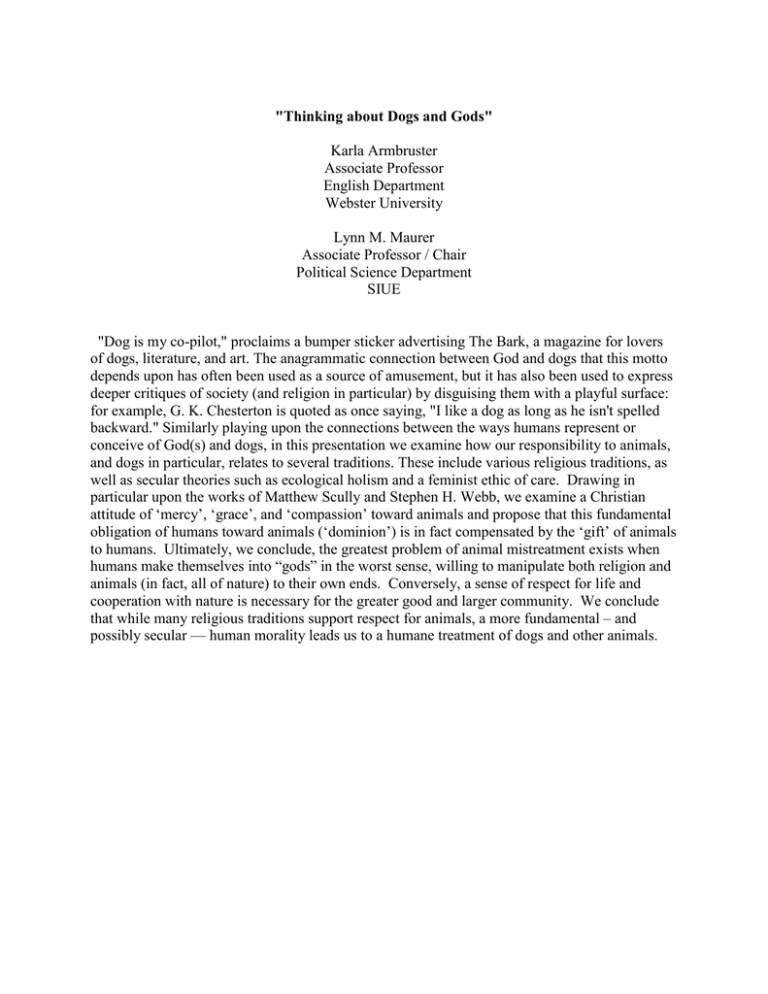Thinking about Dogs and Gods
advertisement

"Thinking about Dogs and Gods" Karla Armbruster Associate Professor English Department Webster University Lynn M. Maurer Associate Professor / Chair Political Science Department SIUE "Dog is my co-pilot," proclaims a bumper sticker advertising The Bark, a magazine for lovers of dogs, literature, and art. The anagrammatic connection between God and dogs that this motto depends upon has often been used as a source of amusement, but it has also been used to express deeper critiques of society (and religion in particular) by disguising them with a playful surface: for example, G. K. Chesterton is quoted as once saying, "I like a dog as long as he isn't spelled backward." Similarly playing upon the connections between the ways humans represent or conceive of God(s) and dogs, in this presentation we examine how our responsibility to animals, and dogs in particular, relates to several traditions. These include various religious traditions, as well as secular theories such as ecological holism and a feminist ethic of care. Drawing in particular upon the works of Matthew Scully and Stephen H. Webb, we examine a Christian attitude of ‘mercy’, ‘grace’, and ‘compassion’ toward animals and propose that this fundamental obligation of humans toward animals (‘dominion’) is in fact compensated by the ‘gift’ of animals to humans. Ultimately, we conclude, the greatest problem of animal mistreatment exists when humans make themselves into “gods” in the worst sense, willing to manipulate both religion and animals (in fact, all of nature) to their own ends. Conversely, a sense of respect for life and cooperation with nature is necessary for the greater good and larger community. We conclude that while many religious traditions support respect for animals, a more fundamental – and possibly secular — human morality leads us to a humane treatment of dogs and other animals.


